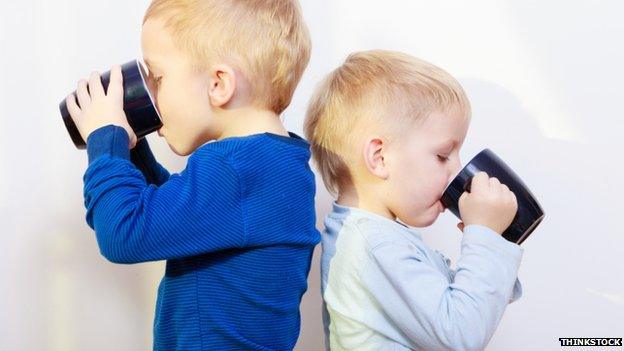Birth order link to being overweight
- Published

Siblings: Could birth order affect your weight?
First-born children may be more likely than second-borns to be overweight in later life.
A small study of middle-aged men living in New Zealand found children born first into their family were about one stone (7kg) heavier and had a bigger BMI than second-borns.
They also had more insulin resistance, which can lead to health problems.
Birth order may affect the risk of cardiovascular disease and type 2 diabetes, say researchers.
Larger studies are needed to fully evaluate this link, they add.
There is some evidence to suggest birth order may influence the body's fat make-up and metabolism, from infancy to the teenage years.
However, the potential impact in mid-life is unknown.
Prof Wayne Cutfield and colleagues at the University of Auckland, external studied 50 overweight but otherwise healthy men between the ages of 40 and 50.
"First-born men were heavier and had lower insulin sensitivity than second-borns," they report in the journal, Scientific Reports, external.
"Thus, first-born adults may be at a greater risk of metabolic and cardiovascular diseases."
Prof Cutfield said the risk of developing obesity or diabetes occurs when enough risk factors come together.
"Being first born is one such risk factor, it does not mean first-borns will become overweight or diabetic, being first-born simply increases the risk."
The researchers say the study needs to be repeated in pairs of siblings and with more subjects.
Christopher Allen, senior cardiac nurse at the British Heart Foundation, external, said carrying extra weight can not only increase the risk of cardiovascular disease, but also affect how sensitive the body is to insulin.
"By having lower insulin sensitivity, this increases your risk of developing type 2 diabetes.
"It's also important to note where you carry your weight.
"People who carry more fat around their middle are more likely to be resistant to the insulin their body is producing."